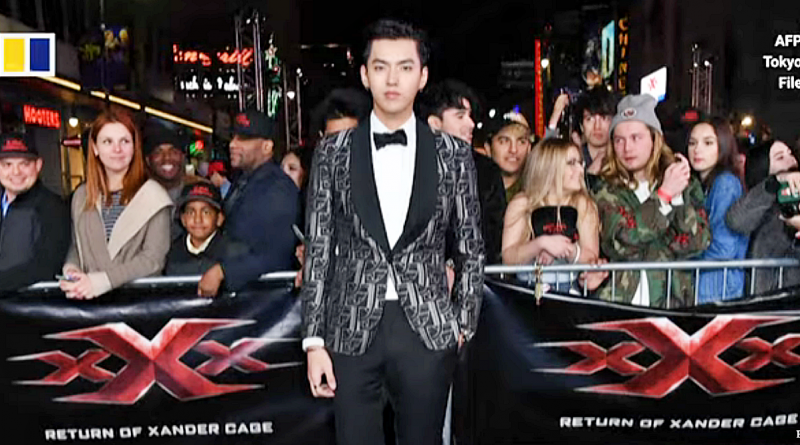Maclean’s Magazine:The Rise and Fall of a Chinese-Canadian Pop Star
Wu allegedly held parties where he’d pick out girls who caught his eye, then ask his assistants to invite them to his hotel on the pretense
Chan was right: the public soon forgot about Wu’s alleged transgressions. Over the next few years, he cemented his star status in China, becoming the first non-British brand ambassador for Burberry and appearing on the cover of Vogue China with Kendall Jenner. As host of The Rap of China, fans turned Wu’s trademark sayings from the show—“do you even freestyle?” and “skr-skr”—into viral memes.
His next goal was to conquer the Western music scene. Wu rapped “I’m the Yeezus of the East” in a track with YouTube-famous musicians Joji and Rich Brian. In late 2017, Wu became the first-ever Chinese-born artist to hit number one on the U.S. iTunes chart for his single “Deserve” with Travis Scott. The Western entertainment hype machine was there to build him up. According to Billboard, “Wu has talent and potential to really be a force in the game,” and Vice said that he was at the “precipice of Western crossover success.” He eventually amassed more than 66 million followers on Weibo and on Douyin, the Chinese version of TikTok. He scored sponsorship deals from brands like Porsche, Bulgari and Louis Vuitton. He reportedly charged the equivalent of around $400,000 per commercial and at least $2 million for brand ambassador positions. By 2017, Wu’s annual income had ballooned to US$23 million, landing him in 10th place on Forbes’ China Celebrity List.
Wu’s mom managed his companies, contracts and finances. On the Li Jing talk show, Wu said she provided him with a “small allowance.” And yet Wu still managed to amass a collection of multi-million-dollar homes in Beijing, Vancouver and Los Angeles. His collection of supercars included a metallic gold Ferrari 488 GT and at least three Mercedes-Benzes.
Wu’s internet presence was meticulously crafted to cultivate an image of a humble mama’s boy with a rapper’s swagger: he often visited Vancouver, where he was spotted eating jianbing— Chinese crepes—and playing pickup basketball. The bulk of Wu’s fans were based in China, Southeast Asia and the Middle East. They built webpages and social accounts dedicated to his professional and personal life; they religiously watched his music videos and vlogs, and even banded together—apparently bypassing China’s strict internet firewalls—to download his songs and boost his numbers on U.S. charts. One Weibo fan account with half a million followers urged his fandom to “buy buy buy on iTunes without stopping. We have 48 hours to get Kris to the top of U.S. iTunes . . . the most important thing in the world is to get to the top of the charts!” Offline, the fans thronged airports when Wu touched down in any city. At fan meet-and-greets, they asked questions usually reserved for doting moms: “Did you eat dinner yet? Do you like your new hairstyle? Do you feel happy now that you’ve finished filming?”
But Wu’s wholesome image concealed a lurid dark side. In December of 2020, Du Meizhu, an 18-year-old acting student at the Communication University of China in Beijing, received a text on her phone. The message was from Wu’s female assistant, inviting Du to a party at Wu’s mansion in Beijing’s wealthy Chaoyang district. Wu’s team was casting girls for his upcoming music video, his assistant said. When Du entered the house, she later alleged, her phone was taken away and Wu and other partygoers pressured her to drink. Wu’s assistant found Du hiding out in the bathroom, secretly using her phone. The assistant allegedly told her that she had to have a good time or Wu would get angry. “I drank foreign wine and cocktails, mixed. I didn’t dare to resist. It didn’t take long for me to fall unconscious,” Du later said.
The way Du tells it, she woke up the following morning in Wu’s bed. She claims they had sex the previous night and that Wu didn’t wear a condom. When Wu woke up, she says, he told her that he was now responsible for her well-being and would take care of her for the rest of her life. Du stayed for brunch at Wu’s home that day and says he indicated that he wanted to pursue a genuine relationship with her. “Sister, I’m in a relationship now with Wu Yifan,” she wrote to her friend Liu Meili on WeChat, using Wu’s Chinese name. “I swear I’m not lying to you.” Three days after the party, Du says Wu transferred her 32,000 yuan (around $6,000) for shopping—a tactic his friends say he used to control romantic relationships and gain girls’ trust.
Their relationship developed over the next few months on WeChat and occasional meet-ups. Wu promised to take Du to meet his mom during Chinese New Year in February of 2021. She thought he seemed sincere.“He was the best actor in the world that day,” Du said. Even after what had transpired at Wu’s party, she was captivated by what she described as the “innocent gaze that softened our hearts.” But Wu’s infatuation with Du seemed to end as swiftly as it had started. After four months of talking and hanging out, he ghosted Du. The next month, Chinese media published photos of Wu leaving a movie theatre with an 18-year-old model.





